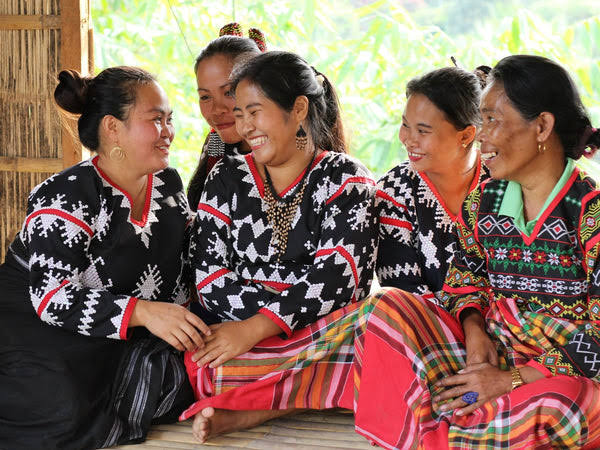"When we silence the voices of the past, we risk losing the wisdom of the future."
For generations, indigenous people of the Philippines have stewarded our lands and kept their beauty, traditions, and wisdom alive for centuries. Despite richness in heritage and depth of connection with the environment, their voices are continuously drowned out, their rights trampled. It's time to stop sidelining the very people who hold the key to sustainable living and the preservation of our culture. It is beyond mere recognition that they deserve; it is about empowerment and respect. We have to act today and start honoring their contributions, giving them space to thrive, not just survive.
The wisdom of the indigenous people in the Philippines has been passed down through generations but is always drowned out by the noise of modern society. These communities have been carrying the torch for richness in culture, environmental wisdom, and spiritual strength through the ages. They are the heartbeat of our nation, deeply in touch with the land, yet continue to be one of the most marginalized groups in this country. Passively standing by and reflecting is all too done with; the actions come next. Valuing indigenous peoples, nurturing, and giving power to them creates not just a future where their voice is heard but sets pathways leading us toward justice in being truly sustainable and inclusive. Their struggle of survival is our struggle to justice because, through protecting the Indigenous Knowledge and Culture, we do end up protecting the very base for a National Identity.
The rights of indigenous people in the Philippines are not a matter of mere legal necessity but one of moral responsibility. While the passage of the Indigenous Peoples Rights Act was a milestone in history, 27 years hence, many indigenous communities still face threats to their land, culture, and self-determination. While large-scale industries continue to encroach on their ancestral lands, their cultural practices and beliefs are labeled "primitive." That is systemic injustice that mustn't continue. As a country and as individual people, it is our obligation to rise in the belief that indigenous peoples' rights are human rights. And we need to make sure that their voice is loud in every conversation, in every decision, about their land, about their lives.
It is within this struggle that indigenous knowledge is at the forefront. From agriculture and natural resource management to disaster resilience and climate change, indigenous peoples have long been caretakers of sustainable practices. Their deep connection with the environment offers solutions that mainstream society often overlooks. It's time to recognize that their wisdom isn't just a relic of the past but a vital tool for the future. We must cease to look at indigenous knowledge as something "quaint" and move into welcoming it as integral to the solutions for our most intractable problems. The time has thus come when the voices of indigenous peoples should be heard, their rights respected, and their wisdom incorporated into development designs towards a common future that would be genuinely sustainable and equitable.
The time to act is now. It's not good enough just talking about the value of indigenous culture and knowledge once a year; this needs to become part of our lives and policy. Valuing, nurturing, and honoring indigenous peoples must be more than the celebration of their culture but put in an empowered position to continue playing that vital role in the shaping of our country's future. Let us come, not as saviors, but as allies committed to the protection of their rights, preservation of their traditions, and recognition of their knowledge. It is a matter not only of justice but of survival for all of us. Let us make sure the heartbeat of our nation is heard, respected, and honored for generations to come.
The indigenous people of the Philippines are more than the guardians of our natural heritage; they are the soul of our nation. The struggle for the rights of indigenous peoples is not an abstract issue, but a moral one and a call to action for us all. We must act now, but not as passive observers; rather, as active allies in this fight for justice, this fight for empowerment, and this fight for respect for indigenous communities. It is their strength, wisdom, and resilience that will guide us toward a sustainable future. Let us honor, protect, and empower them-not just today, but every day. The heartbeat of our nation is in its roots. Let’s make sure their heartbeat echoes through the future of our nation.
References:
Cumpio, M. F. L. (2023, October 9). The role of indigenous peoples in Philippine society. Retrieved from https://images.app.goo.gl/EBA8p3yS6bCTZLox7
iStock. (2017, April 25). Ifugao ethnic people wearing traditional clothes, Banaue, Philippines. Retrieved from https://images.app.goo.gl/xGMW7nye6kWnSrTp8
Riches, S. (2022, September 17). The Philippines: Where to experience indigenous culture first-hand. Wanderlust. Retrieved from https://images.app.goo.gl/PhiPSAT5SYepPTYE7
Garcia, L. (n.d.). Your essential guide to brass in indigenous Filipino jewelry: What to know before you shop. Retrieved from https://images.app.goo.gl/MpyjUpYrxc5neWXV6








No comments:
Post a Comment